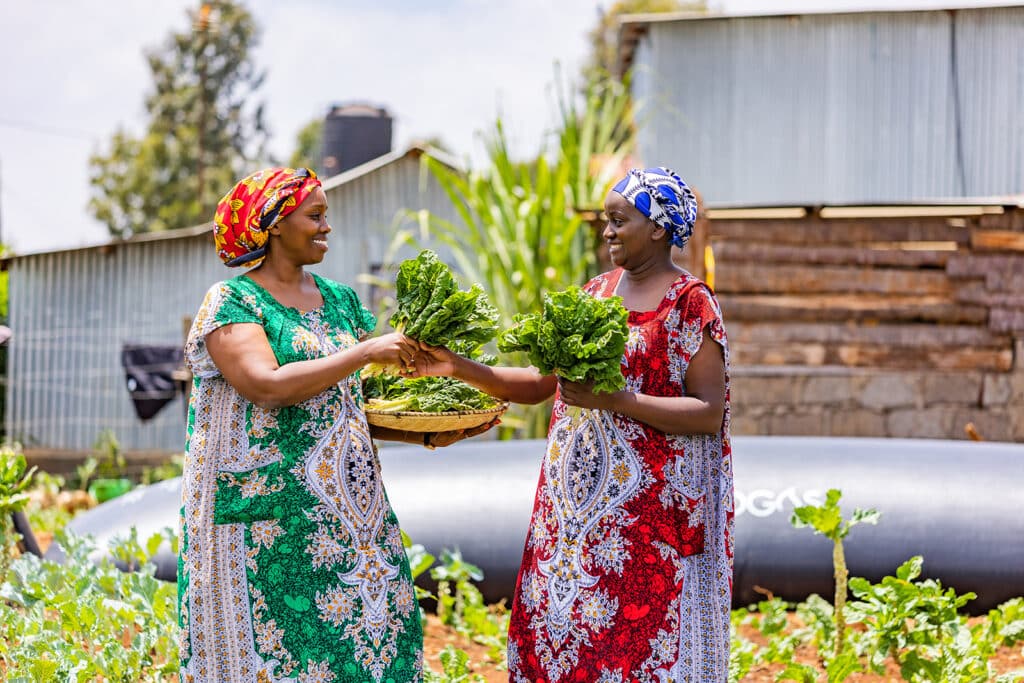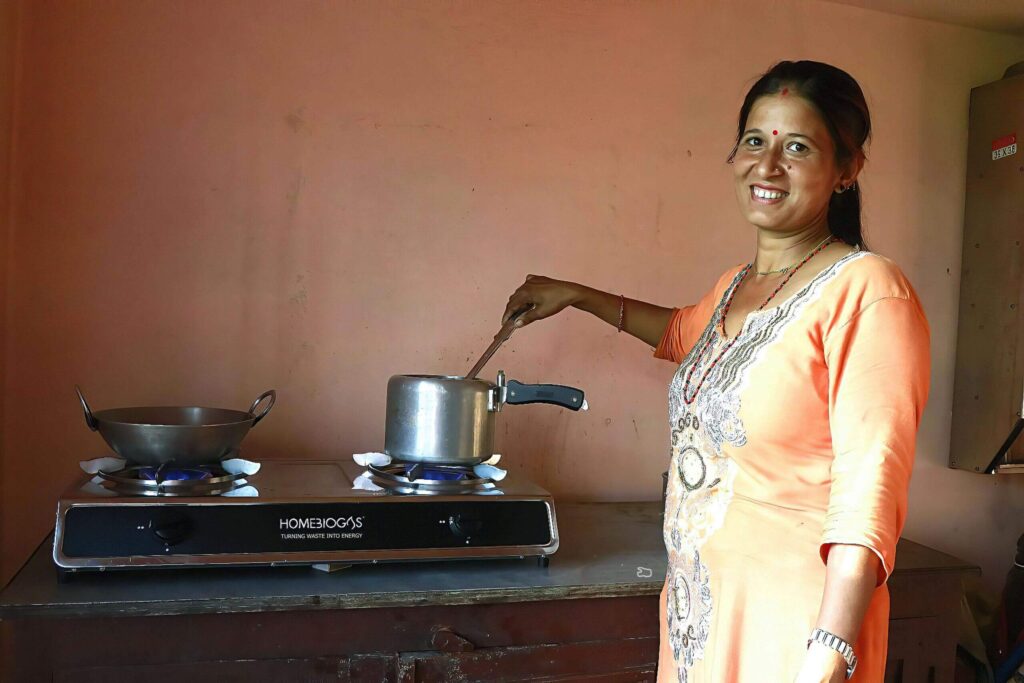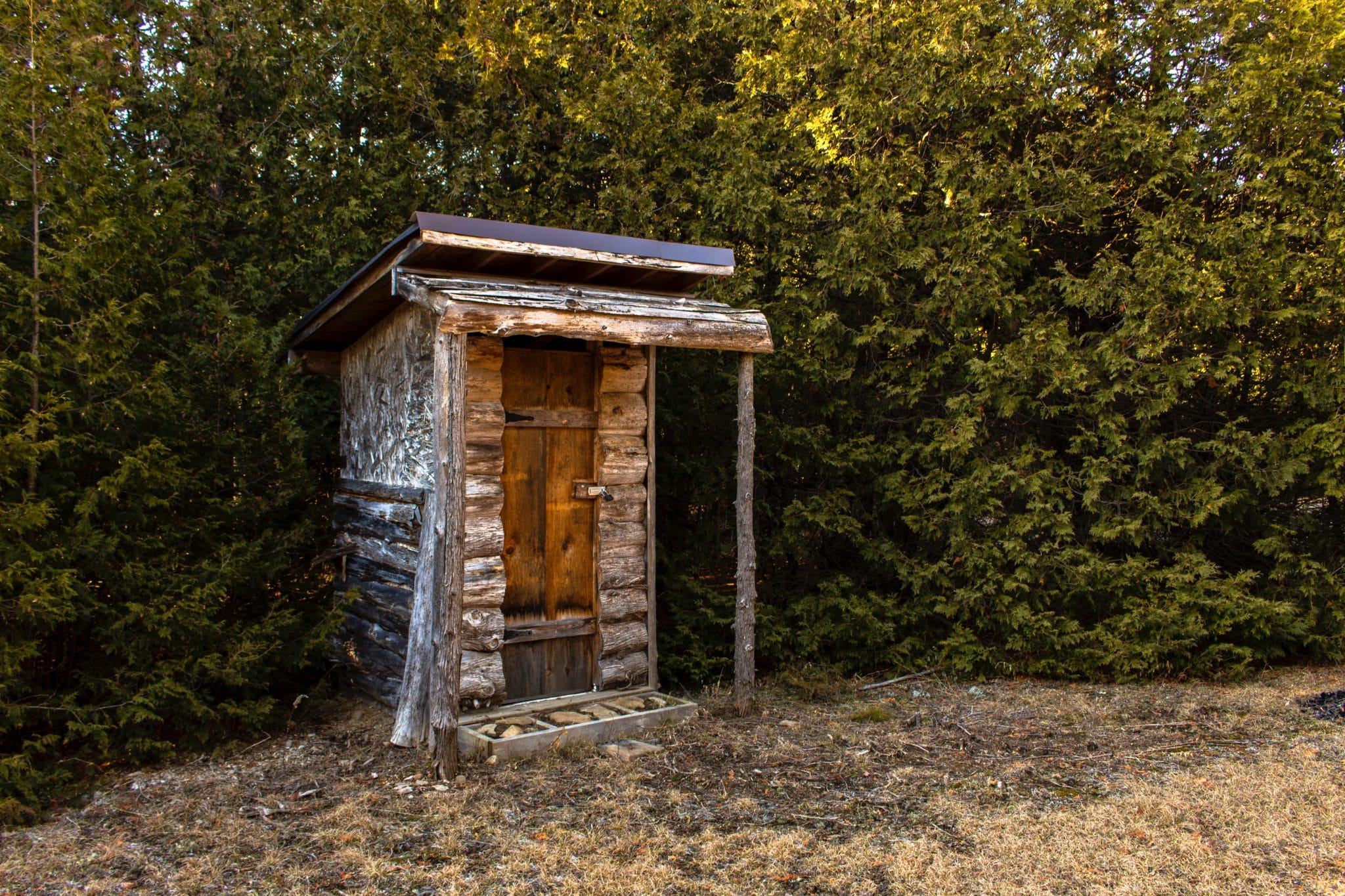
What is an off-grid toilet?
An off-grid toilet is a sanitation system that doesn’t depend on public utilities, so it’s not connected to any centralized sewer, piped-in water, or outside electricity. Some people might think of it as an old and uncomfortable waste management system, but that’s not necessarily the case. There are now Eco-friendly toilets that converts waste into clean energy, promoting sustainability and hygiene.
It’s estimated that 2.4 billion people worldwide don’t have access to safely managed sanitation, so organizations and private companies have developed sophisticated, sustainable alternatives to solve a global problem. Off-grid toilets have evolved into smart systems that are easy to use and make an excellent solution for any mobile or off-grid life situation.
Moreover, off-grid toilets are great options for boating and RVing, besides off-grid houses.
Most off-grid toilets look like regular toilets on top. They’re self-contained and come with a mechanic device that enables users to move the waste inside the bin. The more complex systems also have a septic or bio-septic tank where good bacteria break down organic waste like the HomeBiogas 2 Bio-toilet kit.
What are the pros and cons of off-grid toilets?
Off-grid toilets have many benefits, but they can also come with challenges. Whether you have no possibilities to connect to the grid or are simply looking for an independent system to save money, you should consider a series of elements before deciding.
Let’s start with the most common benefits of owning an off-grid toilet:
- A modern off-grid toilet is environment-friendly and can help you produce energy. It’s the ideal choice for people who aim to own eco-friendly homes and maintain a sustainable lifestyle.
- It’s a relatively cheap alternative in remote locations.
- Its reduced size makes an off-grid toilet practical for RVs and tiny homes.
- The overall costs for waste management can be smaller than what you would otherwise spend to benefit from a centralized system in the long run.
On the other hand, several things can go wrong with off-grid toilets, especially when you choose a product that doesn’t meet modern life requirements. Let’s take a closer look:
- Depending on the type of toilet you install, it might require regular maintenance. Moreover, if you don’t perform this operation regularly, you risk polluting the soil on your property and the water below.
- An incorrect setup of the off-grid toilet can lead to having an unpleasant odor nearby.
- Depending on where you live, you might not have freedom of choice and be compelled to buy specific off-grid systems that comply with local regulations.
- The purchase and installment of the off-grid toilet can cost more than connecting to the grid in some areas.
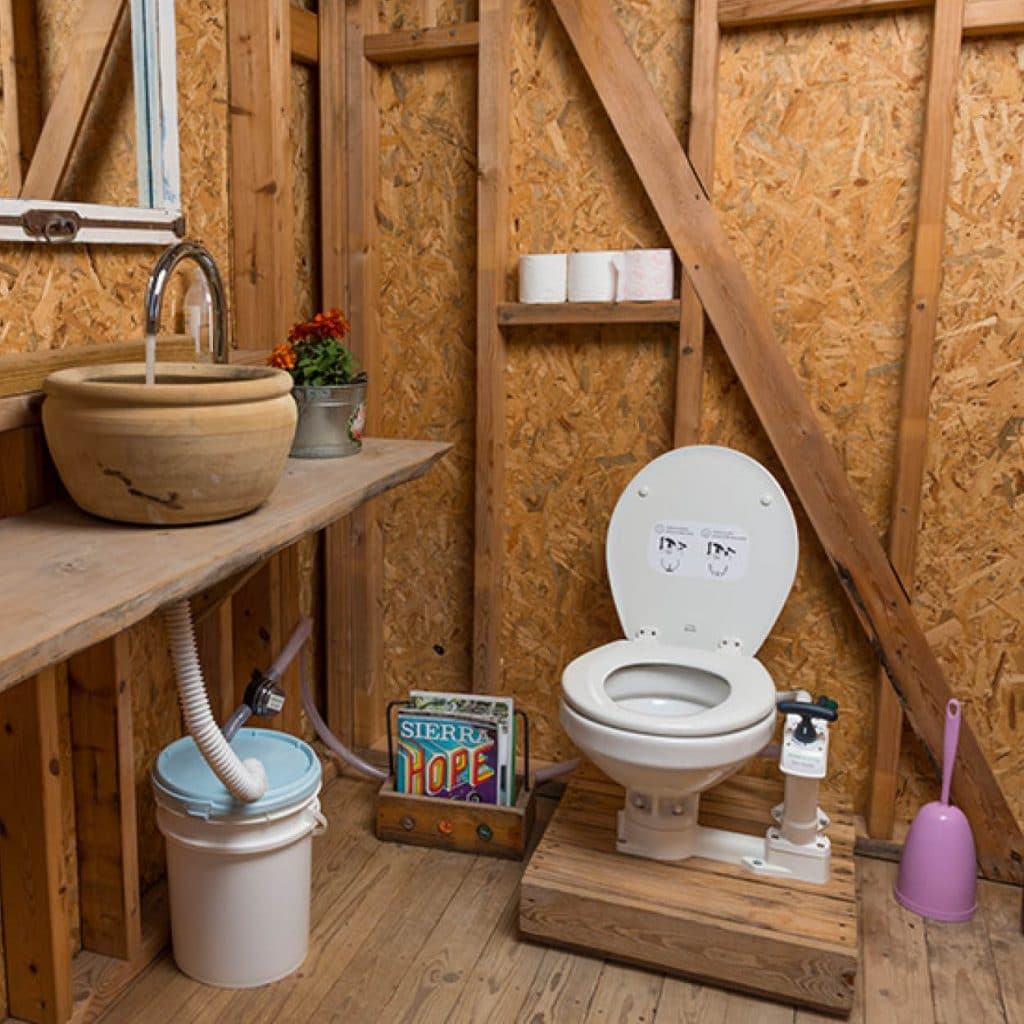
How to choose the proper off-grid toilet for your needs?
As said before, there are multiple types of off-grid toilets to choose from, each with specific benefits and disadvantages. So, how do you make the right choice for your lifestyle?
It depends on a series of factors, from the location where you need the toilet to the number of people who use it. Check out the most important things to consider and how they can influence your choice.
Your location
Depending on where you live, you might have to comply with a series of local rules when buying or building an off-grid toilet system. Another essential thing to consider is the distance from the closest house connected to the centralized sewer, the costs of energy, and the average temperatures during the year.
Not all off-grid toilets are designed to function in all climates; some are better for warm areas, while others are better for four-season solutions. Make sure you read all the documentation available before making a buying decision.
Installation
One of the most significant factors that could turn even a top choice off-grid toilet solution into a failure is the way you install the system. Therefore, you need to consider its complexity when picking the best off-grid toilet for your homestead.
If your DIY skills are above average, you can consider a system that needs to be built from scratch. Otherwise, you might want to choose a fully assembled product or find a company that can install the toilet for you.
Sure, you can always hire a third party to get the help you need. In this scenario, you want to make sure the contractor has done this before and knows how to install the type of toilet you’re purchasing.
Capacity
A small off-grid toilet is excellent for your RV or a small second house, where you only spend a few weekends a year. However, if the off-grid toilet serves a family of several adults plus children every day, you want a system big enough to keep up.
This element is vital, especially when you pick a solution that needs to be emptied regularly. This brings us to the next factor.
Maintenance
Not all off-grid toilets are made equally. Some systems are complex and self-sustainable, which means they require low maintenance. However, if you don’t want to invest too much in such a system, you can opt for an eco-toilet that requires you to carry a bucket of waste to the disposal point several times a week.
Knowing where and how you’ll dispose of the waste before picking the right system can help you make a better decision, so take the time to analyze the implications of having a specific type of off-grid toilet.
Top 3 off-grid toilets to consider
As you could expect, the most popular off-grid toilet systems are highly efficient, easy to install, and low maintenance. Let’s see the top choices you want to consider when opting for an off-the-grid sanitation system.
1. Homebiogas Bio-Toilet
This model plays a double role; not only will it provide an eco-friendly solution for waste management, but it’s also a biogas system. This way, you can save on water and utility bills while producing cooking gas.
Homebiogas Bio-Toilet is a fully-integrating composting system that uses anaerobic digestion to transform waste into energy. Despite its complex role, the system is easy to install and requires minimum maintenance.
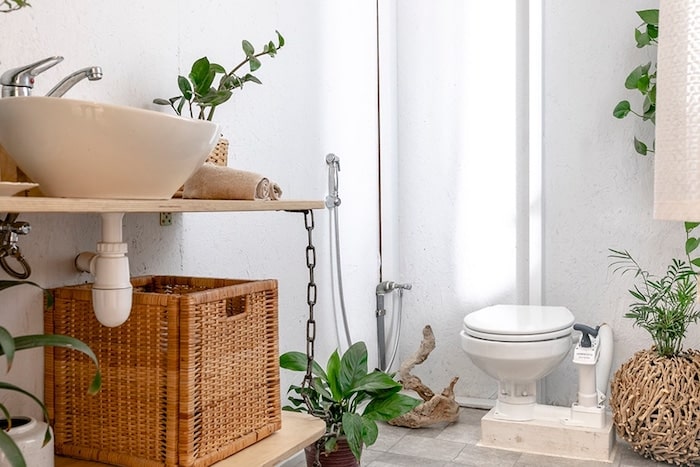
HomeBiogas Bio-toilet
Designed for the next generation of green innovation.
2. Incinerating Toilet
An incinerating off-grid toilet doesn’t reuse waste but burns the refuse and turns it into ash. They require energy to function and can be electrical or gas-powered. Generally, it takes about an hour to get rid of the waste, but the good news is, you can use the toilet during the burn cycle.
Since they require high energy input, incinerating toilets aren’t a top choice for RVs. But, if you have access to clean, cheap power, this system can provide a quick and hygienic way to manage waste.
3. Portable Composting Toilet
This product is popular mainly among boat and RV owners, as the system is portable and smell-free. The toilet includes venting fans, a urine separator, and a peat moss addition system. Usually, it works without electricity or water, which is ideal when you don’t have easy access to utilities.
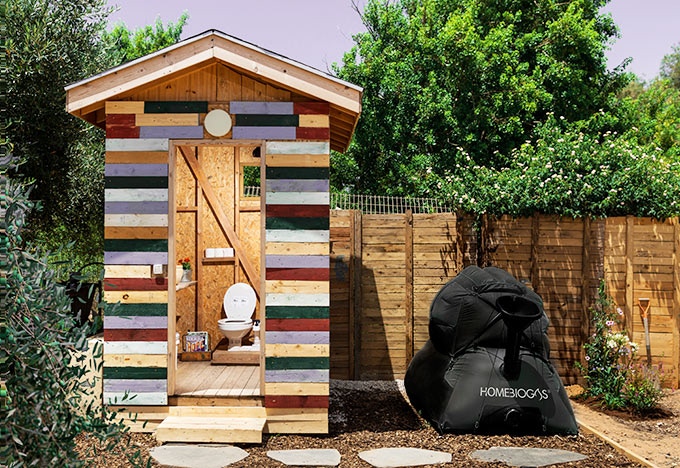
Summary
Off-grid toilets are no longer the simple systems our ancestors used before modern times. Nowadays, you can rely on sophisticated, sustainable designs that manage waste and, in some cases, enable you to reuse that waste to produce energy.
They’re the ideal solution for homesteads located in areas where access to public utilities is limited or inexistent or for people looking to achieve a self-sustainable lifestyle.
As more eco-friendly toilets are developed, you want to assess a series of factors before picking the right solution for your needs. Among the most important things to consider are your location, budget, and the type of toilet that is more likely to fit with your lifestyle.




